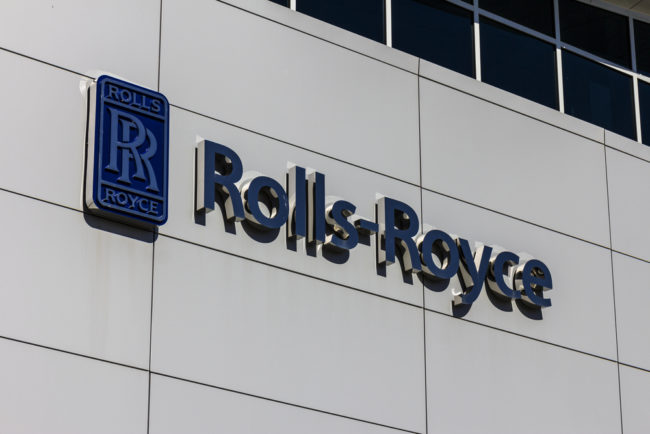No individual prosecutions are to be brought over long-standing corruption at Rolls-Royce, the Serious Fraud Office has announced.
The firm had already paid out a fine of almost £500m for crooked conduct spanning three decades, following an inquiry.
Fraud investigators said the decision to close the case followed a “detailed review” of the available evidence and an assessment of the public interest.
The move comes after the SFO narrowed its investigation into the iconic engineering firm.
A separate long-running inquiry into the pharmaceutical giant GlaxoSmithKline (GSK) has also been dropped, with no prosecutions.
SFO director Lisa Osofsky said: “After an extensive and careful examination I have concluded that there is either insufficient evidence to provide a realistic prospect of conviction or it is not in the public interest to bring a prosecution in these cases.
“In the Rolls-Royce case, the SFO investigation led to the company taking responsibility for corrupt conduct spanning three decades, seven jurisdictions and three businesses, for which it paid a fine of £497.25m.
“I am thankful for the work of colleagues and the assistance of domestic and international partners.”
Rolls-Royce said it would be not be commenting on the SFO decision, while GSK said it was “pleased”.
Ms Osofsky, who took up the top job last September, has pledged to speed up the agency’s investigations and review evidence in more than 70 cases to see why decisions were taking so long.
The SFO’s inquiry into Rolls-Royce had already been under way for more than four years when it reached the plea deal with the company in 2017.
The agency entered into a deferred prosecution agreement (DPA) with the firm, leading to the biggest-ever UK fine for bribery and corruption.
Its misconduct took place across at least seven countries, including China, India, Nigeria and Russia.
The DPA was struck following a joint investigation with the US Department of Justice and authorities in Brazil.
Speaking about the decision, Francesca Titus, a corporate crime specialist at Fieldfisher said: “In his 2017 DPA judgment, Sir Brian Leveson, President of the Queen’s Bench Division stated that the investigation revealed the most serious breaches of the criminal law in the areas of bribery and corruption, some of which implicated senior management and, on the face of it, controlling minds of the company.
“Yet, today, the SFO announced that there will be no prosecutions of any individuals for that criminal conduct.
“This begs the question, when will the SFO get their investigations right?”
“Under the weight of SFO investigations, big business is paying hundreds of millions of pounds and entering DPAs to avoid prosecution for the criminal actions of their employees.
“The SFO are then failing to secure convictions against those employees, or not even bringing charges against them.
“The corporates must now be asking themselves if they should have agreed to the DPAs in the first place.
“As lawyers, we ask how can the public can be expected to have faith in the SFO and the DPA process, if this is the outcome of such high profile investigations?
“Rolls-Royce offered ‘extraordinary’ cooperation to the SFO, even waiving legal professional privilege.
“It was rewarded with a DPA requiring it to pay almost £500 million.
“At the time of the judgment Sir Brian Leveson praised Rolls-Royce’s openness and encouraged other businesses to follow its example.
“In light of what has happened today defence lawyers will be cautious to recommend this approach.”


